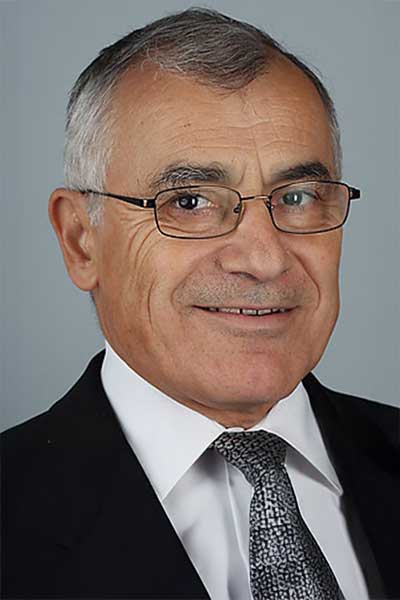The evolution of systemic lupus erythematosus (SLE) research has been marked by significant discoveries from various researchers, including the late Eng Tan, MD, who, among his many contributions to the field, revolutionized the role of biomarkers and advanced the understanding of autoantibodies in SLE.

During a special lecture to honor Dr. Tan at ACR Convergence 2025, George C. Tsokos, MD, Professor of Medicine at Harvard Medical School, and Chief of the Division of Rheumatology and Clinical Immunology at Beth Israel Deaconess Medical Center in Boston, will discuss how the current understanding of the pathogenesis of SLE has evolved over time and where future directions in research might lead.
The session, Rheumatology Research Foundation Memorial Lecture: To Memorialize Dr. Eng Tan — “From Antibodies to Cells: Unraveling the Complexities of Systemic Lupus Erythematosus” — will be held from 10:30–11:30 a.m. on Monday, October 27, in Room W375B of McCormick Place.
“Beginning in the late 1940s, numerous breakthroughs in SLE research led to important discoveries about biomarkers, immune proteins, and enzymes that advanced our understanding of the pathogenesis of SLE and complications of the disease,” Dr. Tsokos said.
Building on those early discoveries, he noted that researchers like Dr. Tan continued to expand the understanding of how abnormal immune cells and autoantibodies drive the disease, and importantly, the key role of T cells.
“T cells are at the center of lupus problems, affecting both autoimmunity and risk of complications,” Dr. Tsokos said. “T cells become abnormal before autoantibodies appear, showing they are an early driver of disease, and they increase the chance of infections in lupus patients.”
Researchers today are exploring new treatments to restore immune balance in SLE, including low-dose interleukin-2 (IL-2) therapy to boost protective T cells, chimeric antigen receptor (CAR) T cell therapy to remove harmful immune cells, and engineered regulatory T cells to control disease activity. However, challenges remain, such as increased infection risks from immunosuppressive drugs and concerns about the safety of advanced therapies.
“Moving forward, we need to work on developing better, easier and cheaper engineered cells, whether it be T cells, NK (natural killer) cells, or regulatory cells to treat patients with lupus,” Dr. Tsokos said. “We also need to continue to explore the differences among patients so that we can create safer, more personalized approaches and tailor treatments to each patient’s unique immune profile.”
On-demand access to recorded presentations will be available to registered attendees of ACR Convergence following the annual meeting through October 31, 2026.
Don’t Miss a Session

If you weren’t able to make it to a live session during ACR Convergence 2025 — or you want to revisit a session from the annual meeting — make plans to watch the replay. All registered participants receive on-demand access to scientific sessions after the meeting through October 31, 2026.
